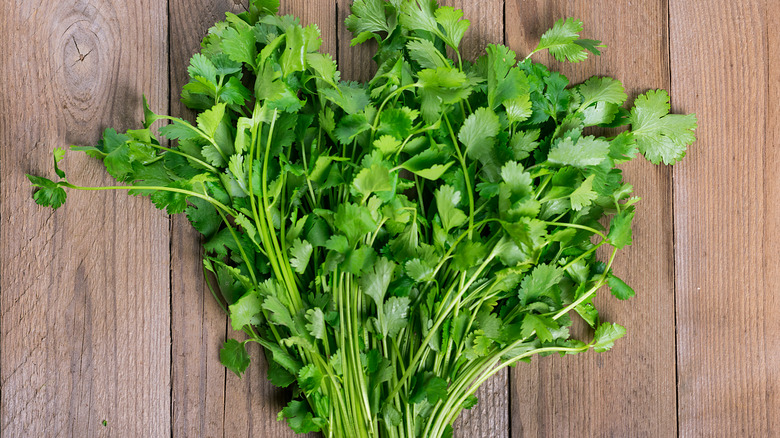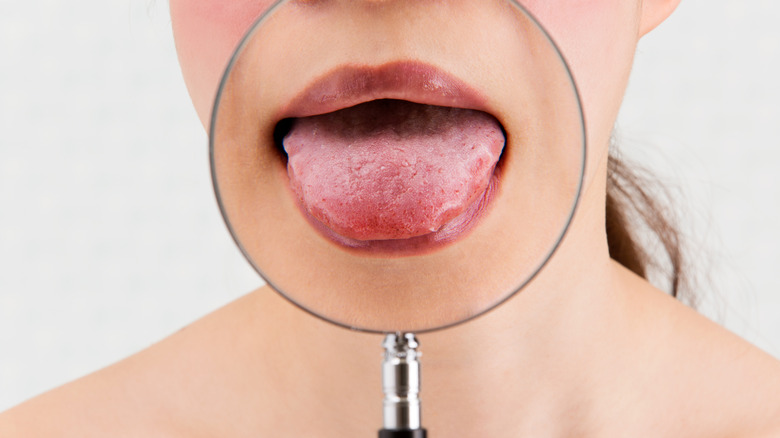The Real Reason Some People Think Cilantro Tastes Like Soap
Imagine you're sitting down to a delicious meal of enchiladas smothered with cheese and sprinkled with cilantro. You put a forkful of your meal in your mouth, expecting to taste flavorful spices and hints of something savory, only to taste ... soap? Did your host forget to rinse off the plates? Are you losing your mind? If you happen to be one of the approximately 25% of people who are known as supertasters, you're probably not imagining things at all (via Healthline).
Everyone has taste buds on their tongue that help them detect different flavors. Most people can taste five categories of flavors: sweet, sour, salt, bitter, and umami. Scientists believe that humans developed the ability to sense these flavors in order to survive (via Harvard School of Public Health). The ability to taste sugar means that we can detect foods with sources of energy, while salt detection helps us keep the fluids in our body balanced. Plants often contain chemicals that taste bitter to keep animals from eating them or to warn of their toxicity. In supertasters, bitter tastes are enhanced, sometimes to an unpleasant level.
Your tongue may be to blame
One of the most common complaints of supertasters is their dislike of cilantro. When the bitter compounds in cilantro hit the taste buds of a supertaster, the result is a soap-like quality. To mask the bitter taste of things like vegetables, supertasters tend to use more salt in their food. They also don't have as much of an affinity for sweet foods or foods that are high in fat (via Harvard School of Public Health). Scientists aren't exactly sure as to how someone becomes a supertaster, but they speculate that it may be due to several factors including genetics (via Health). Supertasters also tend to have more papilla, or the tiny bumps where taste buds live on our tongues. More bumps means more exposure to different tastes.
There are several health benefits to being a supertaster. For instance, supertasters are less likely to smoke tobacco or drink alcohol because of the bitter flavors in both (via Healthline). Additionally, their sugar and fat intakes are generally lower compared to average tasters and non-tasters. But don't be too jealous. Supertasters may be at an increased risk for both heart disease and colon cancer because they tend to avoid healthy vegetables and have a high salt intake. So the next time you bite into something bitter, see if you notice. There might be a legitimate reason as to why you've always hated the taste of brussels sprouts.

